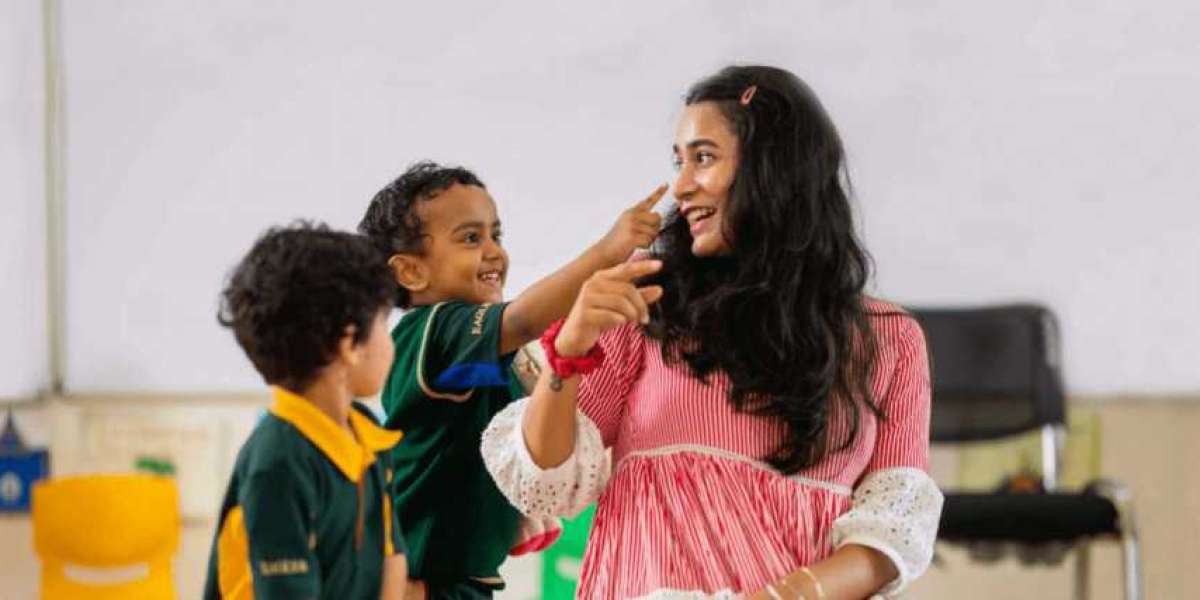1. Smart Classrooms and EdTech Integration
International schools in Hyderabad are investing heavily in smart technologies. Interactive whiteboards, virtual reality (VR), and cloud-based platforms are becoming the norm. These tools help bring lessons to life—imagine learning about volcanoes by virtually standing inside one!
Why it matters:
Smart classrooms keep students engaged and help teachers explain complex ideas in a visual, fun way.
2. Personalized Learning Paths
No two students are the same—so why should they all learn the same way? International schools are shifting toward personalized education, where AI tools track a student's strengths and areas for improvement. Based on this data, learning modules are adjusted.
Like a GPS for learning, personalized paths help students reach their potential faster and with more confidence.
3. Focus on Critical Thinking Over Rote Learning
Remember memorizing pages without understanding? That’s out the window now. Schools are focusing on critical thinking and problem-solving. Students are encouraged to ask questions, not just answer them.
How does this help?
It builds thinkers, innovators, and leaders—not just test-takers.
4. Global Curriculum with Local Relevance
From the IB (International Baccalaureate) to Cambridge and IGCSE, these curricula prepare students for global competition. But international schools in Hyderabad also integrate Indian values and regional topics, creating a balanced outlook.
The goal?
Create global citizens who never forget where they come from.
5. Project-Based and Experiential Learning
Learning by doing is the new mantra. Whether it’s building a robot, starting a mock business, or creating a compost pit, students are engaging in hands-on projects.
This type of learning teaches practical application, teamwork, and real-world problem-solving.
6. Blending Online and Offline Learning
The pandemic showed us the power of online learning. Now, Hyderabad’s international schools are combining offline classrooms with digital platforms like Google Classroom, Microsoft Teams, and more.
Blended learning offers flexibility and ensures learning continues—rain or shine, school or home.
7. Emphasis on Life Skills and Emotional Intelligence
It’s not just about grades anymore. Skills like empathy, communication, time management, and resilience are being taught explicitly. Schools have counselors, mindfulness sessions, and SEL (Social Emotional Learning) programs.
Because emotional intelligence isn’t optional in today’s world—it’s essential.
8. Sustainability and Eco-Education
With climate change knocking on our doors, schools are stepping up. Green campuses, waste segregation, solar panels, and sustainability clubs are now part of school culture.
Students learn that caring for the planet is as important as any subject in the syllabus.
9. Coding and Computational Thinking in Early Years
Even students in Grade 1 are being introduced to coding and logic! Platforms like Scratch, Tynker, and Python basics are being taught to build foundational digital skills.
Just like learning a second language, coding is becoming second nature to the next generation.
10. Multilingual and Cross-Cultural Learning
With students from diverse backgrounds, international schools celebrate multilingualism and global cultures. Language labs, international exchange programs, and global awareness weeks promote diversity.
This fosters a sense of inclusion, tolerance, and global-mindedness.
11. Teacher Training for Future Skills
To teach future-ready students, teachers themselves need to be future-ready. International schools invest in regular professional development, edtech training, and global teaching certifications.
This ensures the educators are as updated as the syllabus.
12. AI, Robotics, and Future Tech Exposure
Students are getting early exposure to AI, machine learning, robotics, and IoT (Internet of Things). These are no longer college-level topics—they’re taught through clubs, workshops, and exhibitions.
Imagine a sixth-grader building a robot that waters plants when the soil is dry. That’s not science fiction—it’s happening in Hyderabad.
13. Flexible Assessments and Feedback Loops
Standardized tests are being replaced by formative assessments, portfolios, peer reviews, and project evaluations. Instant feedback apps help students see their growth areas and improve in real time.
Learning is now a journey, not a race.
14. Career Guidance and Real-World Exposure
Schools are organizing internships, career talks, entrepreneurship fairs, and college counseling sessions to guide students early on. They collaborate with industries to provide real-world exposure.
Why wait until college to decide your future? Start exploring it in school!
15. Parent Involvement and Community Learning
Gone are the days of “drop your kid and go.” Today, schools involve parents through workshops, feedback forums, volunteering, and even co-learning activities.
After all, it takes a village to raise a child—and Hyderabad’s schools are creating just that.
FAQs
1. How do international schools in Hyderabad use technology in classrooms?
They integrate smartboards, tablets, virtual labs, and AI-based platforms to enhance student engagement and personalized learning.
2. Are international curricula better than traditional ones?
Not necessarily better, but they often offer broader perspectives, critical thinking, and global exposure, which many parents value today.
3. What kind of life skills do these schools focus on?
Skills like leadership, communication, empathy, time management, and resilience are emphasized through structured programs.
4. Is coding necessary for all students?
While not mandatory, many schools introduce it early as it builds logical thinking and problem-solving—skills useful in any career.
5. How do schools ensure teachers stay updated with future trends?
Regular professional development, international certifications, and technology training sessions help teachers stay ahead.
Conclusion
The international schools of Hyderabad are not just preparing students for exams—they're preparing them for life. In a world where careers, technologies, and lifestyles are constantly evolving, these institutions are staying ahead by embracing innovation, nurturing curiosity, and building character.




